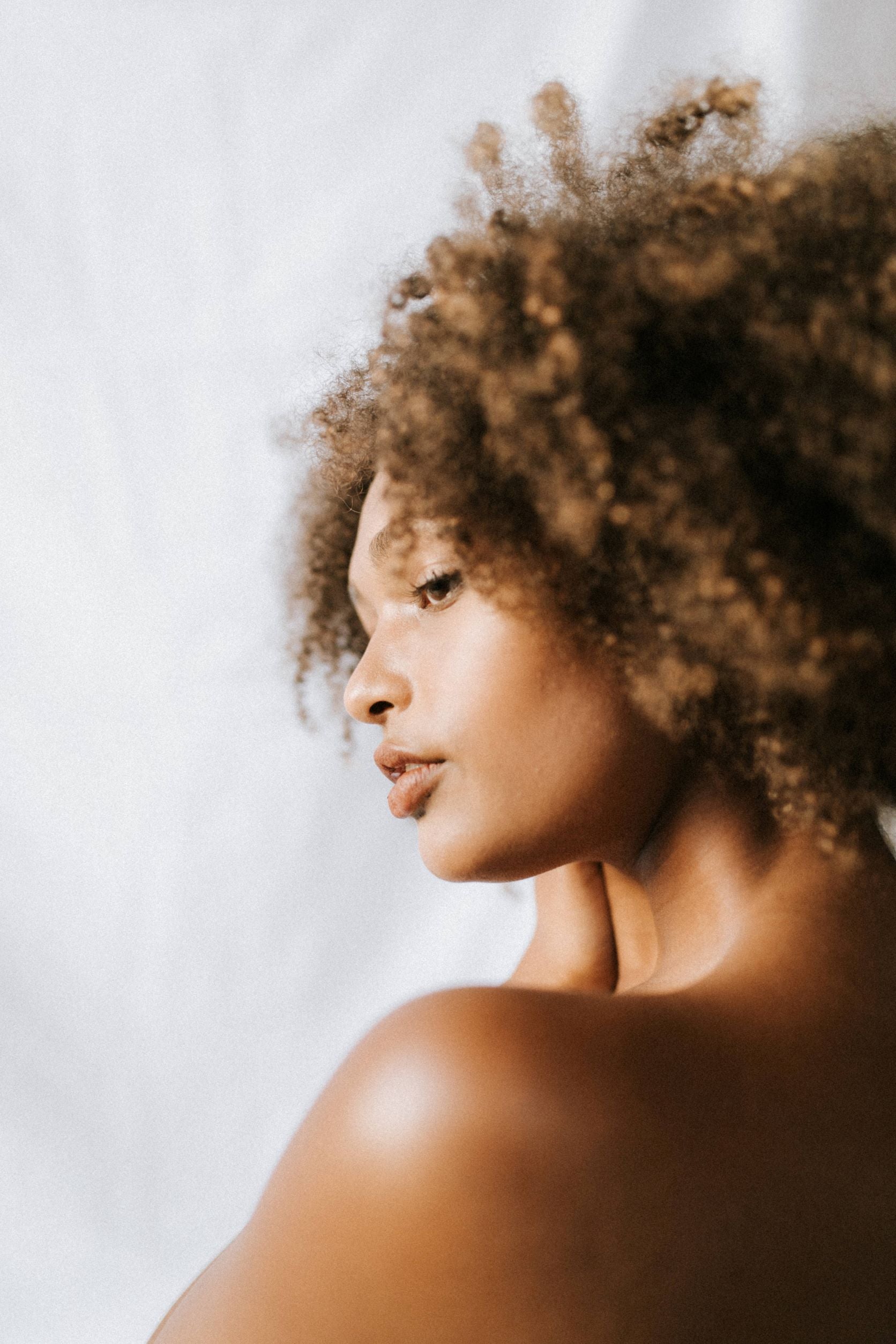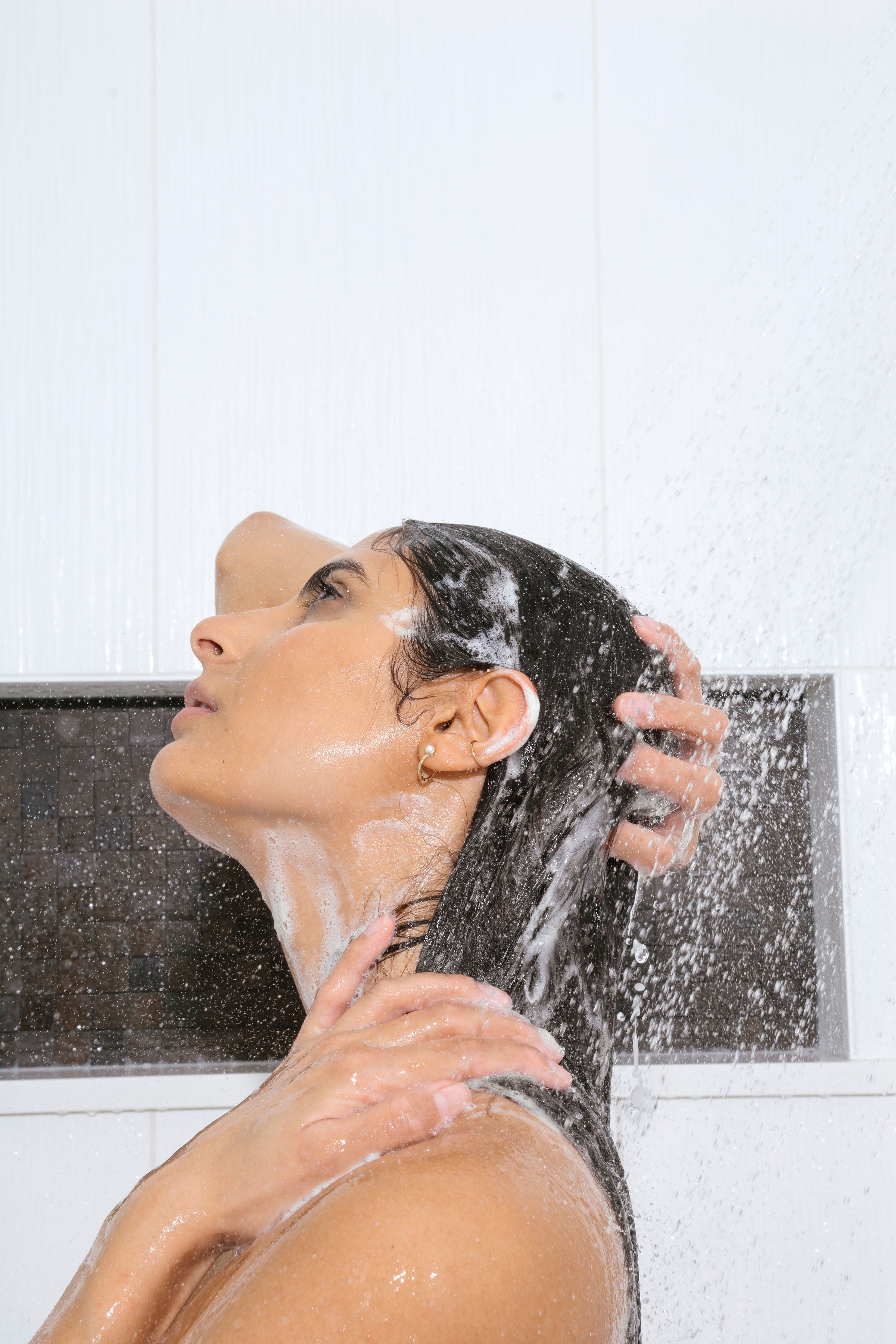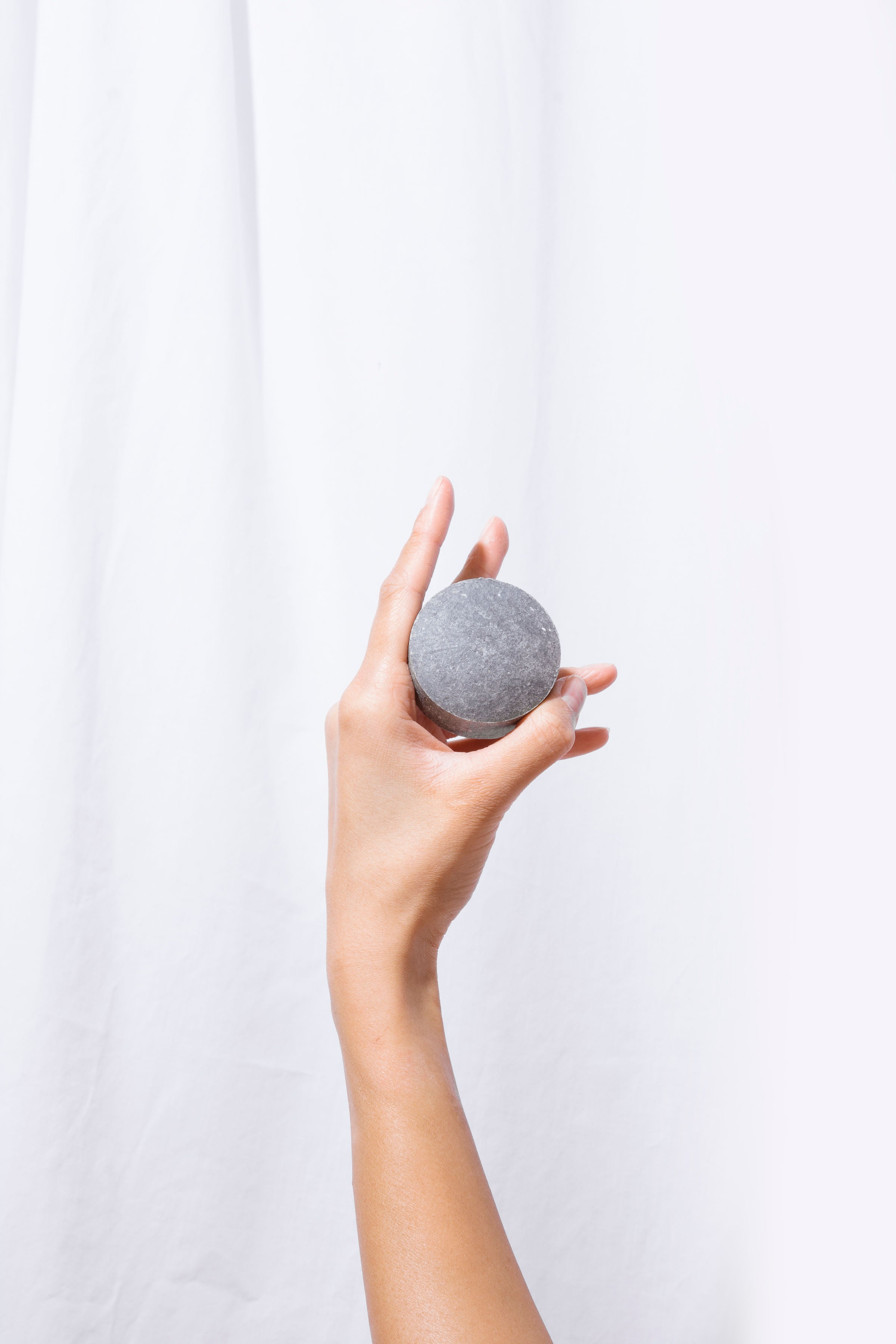
The dreaded “F” Word. Know what Causes Frizz?
Frizz appears when the hair falls out of its natural pattern. The outermost layer of the hair shaft, the cuticle, lays like shingles - one on top of the other. Its purpose is to provide protection to the underlying cortex, but when these strands become damaged, the shingles lift and repel each other causing frizz.
Causes of frizz:
Heredity:
Your hair can be genetically predisposed to frizziness because of its texture. For many hair types, including wavy hair, curly hair, gray and fine hair, a certain amount of frizz comes naturally.
Curly and wavy hair types are more porous by nature and tend to be more dry. Since the cuticles don’t lay flat it allows moisture to escape more easily than straight hair. Hair that is dry or dehydrated causes the strand to become frizzy as it searches for moisture.
Gray hair tends to be more dry and delicate since the scalp produces less oil as we get older.
Finer hair types are generally weaker than coarser hair types, which can leave them more vulnerable to environmental damage and therefore, frizz.
High Porosity:
How porous your hair is refers to how well your hair can absorb and hold onto moisture.
If you have high porosity hair, it means the cuticles are more open. Those openings in the surface allow moisture to pass through, but won’t hold moisture for long. On the other side, low porosity hair means the cuticles are more closed, making it harder for moisture to enter. But once it does enter, the strand can retain the moisture.
Weather:
Humidity is a major environmental contributor to the “F” word. Our hair becomes increasingly porous with time - especially curly hair, making it quite absorbent. When our hair absorbs moisture from the environment, the cuticle swells, wave patterns become disrupted, and we get the appearance of frizz. This swelling of the cuticle makes the hair more vulnerable to other environmental and physical damage, thus increasing the porosity further, and doubling down on the appearance of frizz.
Winter weather causes an imbalance in moisture levels. The extreme temperature changes cause the strands to become dehydrated and brittle from moisture loss.
Damage:
Damage to the hair strand also increases the appearance of frizz. Damage can be environmental, chemical, and physical - including extreme heat applications.
When the hair’s protective lipid layer is stripped by means of harsh surfactants, over washing, over processing, and excessive and/or intense heat styling, the negative ions in the hair become less insulated, and begin to repel one another and cause the hair to become dry.
How you can minimize the appearance of frizz:
Limit heat styling:
Using a heat setting on your styling tools that is too intense for your hair type is perhaps the greatest controllable factor in the appearance of frizz outside of over processing with chemicals. Turn those hot tools down! When we style our hair with excessive amounts of heat we are, in essence, evaporating the moisture that exists inside our strands and leaving them thirsty! This dehydrated hair will try to suck up moisture from the environment and yes, you guessed it, become frizzy!
Start with your curling and flat iron on the lowest heat setting, and work your way up to higher heat. The lowest setting that delivers the desired result is usually 350 or lower for finer, or more porous hair. Go up to 350+ for coarse strands with stronger wave patterns whether it be aggressively curly or aggressively straight, and you end up locking the moisture into those strands and creating a smoother cuticle, keeping the hair more hydrated and less willing to absorb moisture from the environment.
And always remember to aim the concentrator nozzle on your blow-dryer and the direction of air flow from roots to ends for a smoother, frizz free look. If you’re curly, and like to use a diffuser, go for a diffuser with a large amount of air flow vents. The less you disturb the curl pattern with air, the less frizz you will create. And always diffuse your hair from soaking wet. Yes, it will take longer, but if you allow your hair to begin to air dry first, the frizz will set in, and you’ll be unable to correct it. Bundling your curls into separate tendrils is also a great way to keep all the hairs together, for a more polished finish.
Don’t wash with hot water:
Stepping into a hot shower feels amazing, especially when it’s cold outside. However, extremely hot water can strip away your hair’s natural oils and cause moisture loss. When washing your hair, it’s best to use lukewarm water and daily shampoos with gentle surfactants, like all of The High-End Hippie shampoo bars. Keep in mind that to avoid drying out the strands, you shouldn’t over wash.
Avoid excessive friction:
Remember that hair is very absorbent and when the hair is wet it is more delicate and susceptible to damage because of how the cuticle swells. That’s why a good conditioner is a must. Conditioner is designed to mitigate friction between hair strands to reduce damage and breakage. Other ways to reduce friction to the hair strands is by using a silk pillowcase, microfiber towels, hair stylist recommended brushes, and not over touching the hair.
Avoid products containing alcohol:
Avoid ethanol based ingredients like propanol, propyl alcohol and isopropyl alcohol since they have a drying effect on the hair and cause dehydration. However, fatty alcohols like cetyl alcohol and cetearyl alcohol are beneficial since they are conditioning. Read the labels everyone!
Use professional products:
One way to avoid creating additional frizz problems is to keep those strands hydrated and protected. Ingredients like our unique anti-frizz technology used in all our conditioner bars help seal the cuticle and minimize the movement of moisture in and out of the underlying cortex. Professional quality humidity protectants and heat protectants can also be beneficial. And finally, keep the integrity of your hair as intact as possible by not over chemically processing those locks!
A certain amount of frizz is going to be inevitable, depending on your hair type and texture. Following the above suggestion can help to decrease the appearance of frizz, and not create additional frizz problems for hair! Check out our complete line of professional grade shampoo and conditioners here and get control over the “F” word.
Written by Sarah Byer, Senior Stylist & Amy Hamilton, Founder of The High-End Hippie




Leave a comment
This site is protected by hCaptcha and the hCaptcha Privacy Policy and Terms of Service apply.